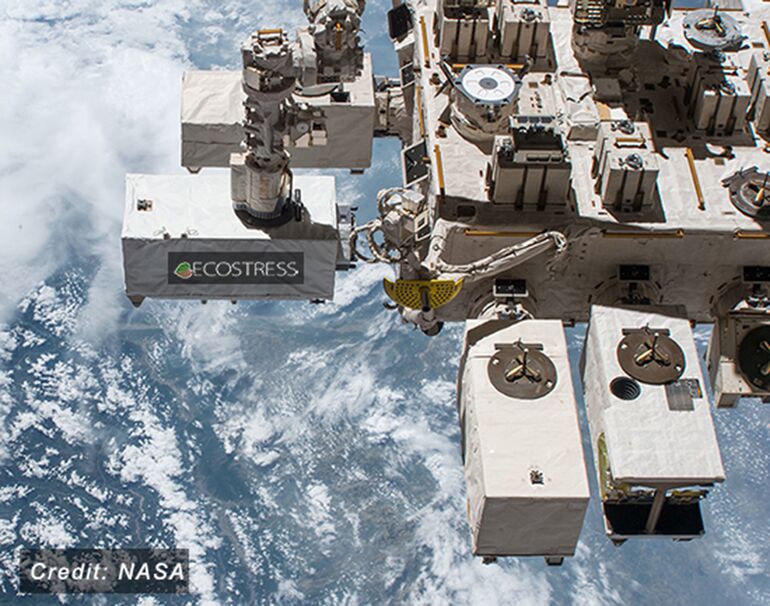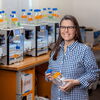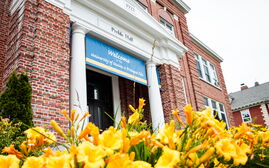
NASA awards $300,000 to UMaine prof for Space Station research
 Courtesy / NASA
NASA-funded research will use imagery gathered by the ECOSTRESS (ECOsystem Spaceborne Thermal Radiometer Experiment on Space Station) radiometer on the International Space Station.
Courtesy / NASA
NASA-funded research will use imagery gathered by the ECOSTRESS (ECOsystem Spaceborne Thermal Radiometer Experiment on Space Station) radiometer on the International Space Station.
A biology professor at University of Maine at Farmington was awarded a $300,000 grant from the National Aeronautics and Space Administration to explore whether an instrument called ECOSTRESS (ECOsystem Spaceborne Thermal Radiometer Experiment on Space Station) on the International Space Station can help predict wildfire effects on forests in the Southwest.
Andrew Barton and Helen Poulos, in the College of the Environment at Wesleyan University, will co-lead a team of five researchers to explore the impacts of climate change and a century of fire suppression on forest stress and recovery in the mountains of southern Arizona, according to a news release.
This will be the first-ever application of ECOSTRESS for wildfire-related research.
Barton and his team were one of 14 applicants to receive the NASA funding. All together, there were of 73 applicants.
The ECOSTRESS is a remote sensing instrument that can measure the temperature of plants to estimate stress to a highly accurate degree and throughout the day.
The project will investigate the effects of the 2011 Horseshoe Two Fire on post-fire tree and site water balance and evaluate the potential of using data gathered from the ECOSTRESS sensor to predict the recovery of forests after wildfire.
An important part of the research is to test the potential of the ECOSTRESS instrument for many applications, ranging from the efficient design of cities to reduce heat stress to improving irrigation for crops to better understanding the interaction of the atmosphere and ecosystems in a warming world.

“Wildfires are becoming a major problem in many parts of the world, including the Southwest,” Barton said in the release. “Our goal is to better understand the impacts of this environment change on forests. There’s every reason to think that NASA’s ECOSTRESS instrument will be a powerful new way for scientists to study these and many other important environmental stresses caused by climate change.”
During the first year of the research, Barton and his team will attach equipment to plants in the Arizona Sky Island Pine-Oak forest to measure water movement. These measurements will reveal daily and seasonal patterns of plant function and stress, as well as verify the data coming from ECOSTRESS instrument.
UMF students will have the opportunity to be involved as research assistants during the second and third years of the project.
Researchers from Northern Arizona University will also be working with Barton and Poulos on the project.













0 Comments